第20章 A.D.14, 15(20)
Cassius, the actor, with men of the same profession, used to take part in the games which had been consecrated by his mother to the memory of Augustus.Nor was it contrary to the religion of the State for the emperor's image, like those of other deities, to be added to a sale of gardens and houses.As to the oath, the thing ought to be considered as if the man had deceived Jupiter.Wrongs done to the gods were the gods' concern."Not long afterwards, Granius Marcellus, proconsul of Bithynia, was accused of treason by his quaestor, Caepio Crispinus, and the charge was supported by Romanus Hispo.Crispinus then entered on a line of life afterwards rendered notorious by the miseries of the age and men's shamelessness.Needy, obscure, and restless, he wormed himself by stealthy informations into the confidence of a vindictive prince, and soon imperilled all the most distinguished citizens; and having thus gained influence with one, hatred from all besides, he left an example in following which beggars became wealthy, the insignificant, formidable, and brought ruin first on others, finally on themselves.He alleged against Marcellus that he had made some disrespectful remarks about Tiberius, a charge not to be evaded, inasmuch as the accuser selected the worst features of the emperor's character and grounded his case on them.The things were true, and so were believed to have been said.
Hispo added that Marcellus had placed his own statue above those of the Caesars, and had set the bust of Tiberius on another statue from which he had struck off the head of Augustus.At this the emperor's wrath blazed forth, and, breaking through his habitual silence, he exclaimed that in such a case he would himself too give his vote openly on oath, that the rest might be under the same obligation.There lingered even then a few signs of expiring freedom.And so Cneius Piso asked, "In what order will you vote, Caesar? If first, I shall know what to follow; if last, I fear that I may differ from you unwillingly." Tiberius was deeply moved, and repenting of the outburst, all the more because of its thoughtlessness, he quietly allowed the accused to be acquitted of the charges of treason.As for the question of extortion, it was referred to a special commission.
Not satisfied with judicial proceedings in the Senate, the emperor would sit at one end of the Praetor's tribunal, but so as not to displace him from the official seat.Many decisions were given in his presence, in opposition to improper influence and the solicitations of great men.This, though it promoted justice, ruined freedom.Pius Aurelius, for example, a senator, complained that the foundations of his house had been weakened by the pressure of a public road and aqueduct, and he appealed to the Senate for assistance.He was opposed by the praetors of the treasury, but the emperor helped him, and paid him the value of his house, for he liked to spend money on a good purpose, a virtue which he long retained, when he cast off all others.To Propertius Celer, an ex-praetor, who sought because of his indigence to be excused from his rank as a senator, he gave a million sesterces, having ascertained that he had inherited poverty.
He bade others, who attempted the same, prove their case to the Senate, as from his love of strictness he was harsh even where he acted on right grounds.Consequently every one else preferred silence and poverty to confession and relief.
In the same year the Tiber, swollen by continuous rains, flooded the level portions of the city.Its subsidence was followed by a destruction of buildings and of life.Thereupon Asinius Gallus proposed to consult the Sibylline books.Tiberius refused, veiling in obscurity the divine as well as the human.However, the devising of means to confine the river was intrusted to Ateius Capito and Lucius Arruntius.
Achaia and Macedonia, on complaining of their burdens, were, it was decided, to be relieved for a time from proconsular government and to be transferred to the emperor.Drusus presided over a show of gladiators which he gave in his own name and in that of his brother Germanicus, for he gloated intensely over bloodshed, however cheap its victims.This was alarming to the populace, and his father had, it was said, rebuked him.Why Tiberius kept away from the spectacle was variously explained.According to some, it was his loathing of a crowd, according to others, his gloomy temper, and a fear of contrast with the gracious presence of Augustus.I cannot believe that he deliberately gave his son the opportunity of displaying his ferocity and provoking the people's disgust, though even this was said.